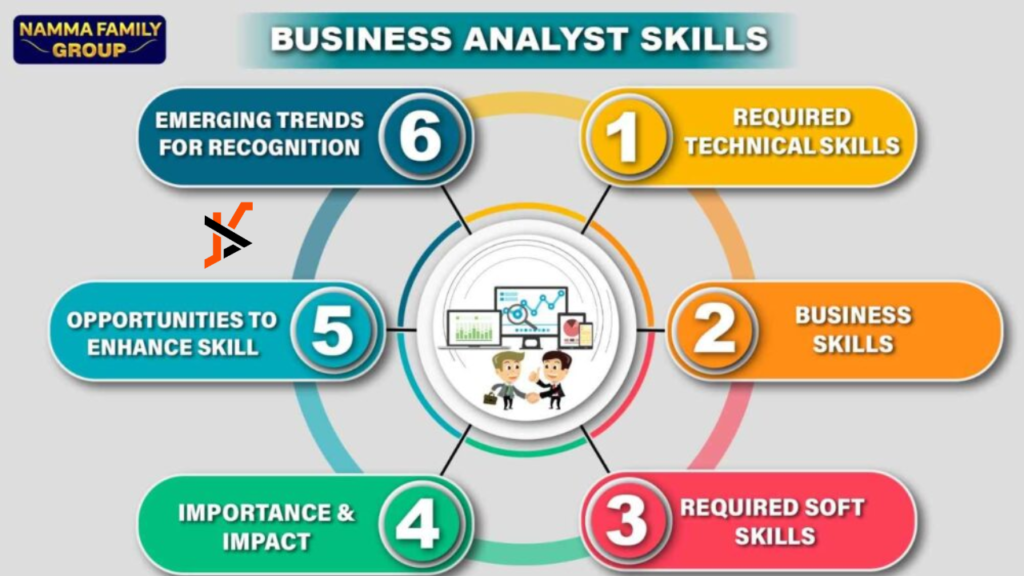With the advancements in technology and a shift in the market landscape, the role of a Business Analyst is becoming more important in the coming years. By 2025, business analysts will be flexible with a skill set beyond conventional analysis. Here’s a rundown of the top skills that business analysts are going to need soon.
1. Data Analysis & Interpretation
Analysis and interpretation of data would then become the cornerstone of most organizations when determining the course of action to take.
Why It Matters: Business analysts have always had to navigate numerous data points to uncover actionable insights.
Key Tools: Excel, SQL, Power BI, Tableau, Python, R.
2. Agile Methodology
Agile project management has become the way of life for most organizations; business analysts have to know what principles of Agile there are.
Why It Matters: Agile methodologies promote flexibility, quicker delivery, and iterative improvement.
Key Tools: Jira, Trello, Scrum, Kanban boards.
3. Business Intelligence (BI)
Business Intelligence tools help to transform raw data into useful insights for better decision-making. One should be good with BI tools.
Why It Matters: Business analysts need to work today with tools that give them visualization and actionable insight from data.
Key Tools: Tableau, Power BI, QlikView.
4. Communication & Interpersonal Skills
The business analyst plays the role of a communication interface between the clients and the technical teams. Business analysts should present the business requirements in technical terms.
Why: The business analyst should be able to convey all business goals, needs, and updates about the project to the concerned groups.
Key Areas: Writing, presentation, negotiation, and relationship-building
5. Critical Thinking & Problem-Solving
Business analysts must critically analyze processes and often identify problems and recommend a potential solution.
Importance: They need to analyze the needs of businesses, recommend solutions, and anticipate potential dangers.
Areas include: root cause analysis, cost-benefit analysis, and design of a solution.
6. Change Management
Change is business life. A BA needs to have the capability of managing change in the least disruptive manner.
Why It Matters: BAs enable an organization to change its processes, technology, or even organizational form as painlessly as possible.
Critical Tools: Prosci ADKAR, frameworks for managing change, approaches for engaging with stakeholders.
7. Awareness of Automation & AI
Automation and AI are constantly innovating. BA needs to understand the impact of such technologies in terms of what impact they might have on the business process.
Why It Matters: Automation and AI can make things simpler, cheaper, and more efficient. Business analysts should be able to find which areas these technologies would be most valuable.
Key Tools: RPA tools, AI applications, machine learning algorithms.
8. Business Process Modeling
Business analysts must know about business process modeling so that they can track bottlenecks in such processes.
Why It’s Important: Process mapping helps an organization understand the bottlenecks of its operation and smooth out its process.
Key Tools: BPMN (Business Process Model and Notation), Visio, Lucidchart.
9. Financial Acumen
Business analysts should have a good understanding of financial metrics and data when making recommendations for new projects or solutions.
Why It’s Important: Business analysts very often have to assess the financial viability of projects and initiatives.
Key Topics: Budgeting, forecasting, financial modeling, ROI calculations.
10. Stakeholder Management
Business analysts interact with the most diverse groups of stakeholders ranging from technical teams to executive management. They must manage expectations, elicit requirements, and ensure projects meet business objectives.
Why It Matters: The ability to manage the stakeholders successfully will help deliver business objectives and maintain relationships, thereby resolving conflict.
Key Tools: Stakeholder analysis frameworks, communication strategies, and requirement-gathering techniques.
11. UX/UI Understanding
With the importance of user experience in product development, basic principles of UX/UI can be applied in the case of a BA.
Why It Is Important: BAs can work with UX/UI designers to ensure that the final product will meet business as well as user needs.
Key Areas: Wireframes, user journeys, interface design principles.
12. Cloud Computing Knowledge
With the rising trend of businesses migrating to the cloud, a business analyst must understand cloud technology and its relevance in business activities.
Why It Matters: Cloud computing is versatile, scalable, and economical and has all areas of interest for a business analyst.
Key Tools: AWS, Microsoft Azure, Google Cloud Platform.
13. Project Management Skills
Business analysts generally manage projects or coordinate with a project team. Basic skills for project management are a necessity.
Why It Matters: A defined methodology in the management of a project ensures that projects come in on time and within the scope.
Important Tools: MS Project, Asana, Basecamp, Gantt charts
14. Risk Management
The business analyst will identify risks and then prepare mitigation plans.
Why It Matters: A risk management policy means that there would be no critical setbacks while executing business initiatives.
Key areas: Risk analysis, SWOT analysis, Mitigation strategy
15. Soft Skills and Emotional Intelligence
With time, EQ, empathy, and active listening skills are turning into essentials for the business analyst.
Why It’s Important: A business analyst should build trust with the stakeholders; smoothly resolve conflicts; and interact positively with stakeholders.
Key Areas: Empathy, adaptability, teamwork, conflict resolution.
Conclusion
In 2025, the role of the business analyst will continue to evolve, requiring a combination of technical expertise, soft skills, and industry-specific knowledge. Developing these skills will help you stay competitive, contribute more effectively to business decisions, and drive organizational growth.
Would you like resources on how to acquire these skills or any specific training

